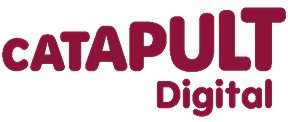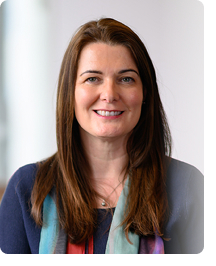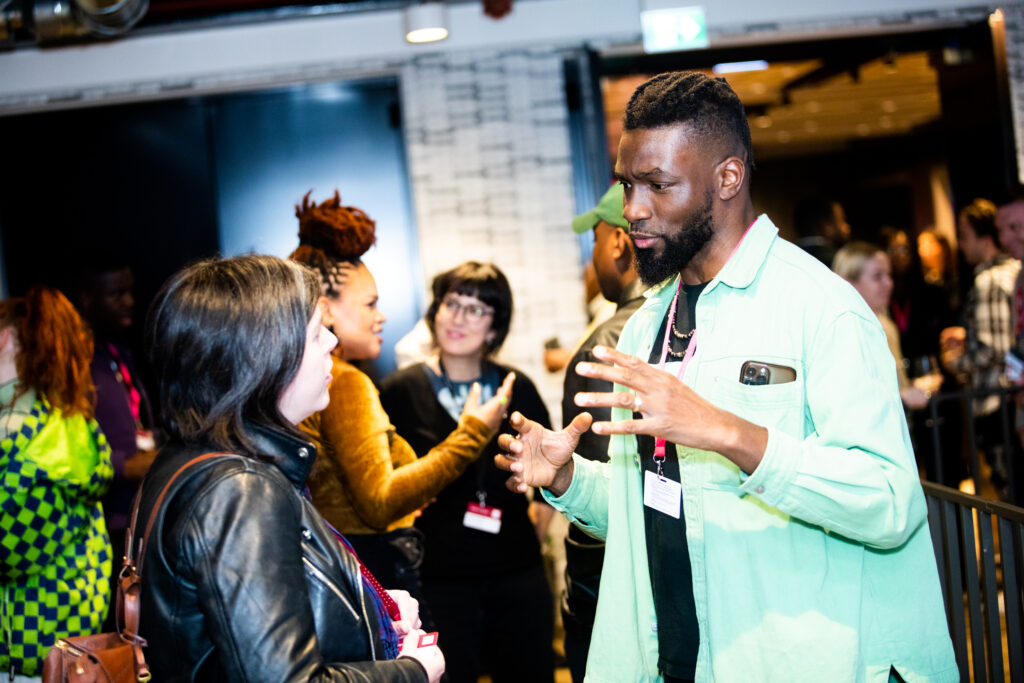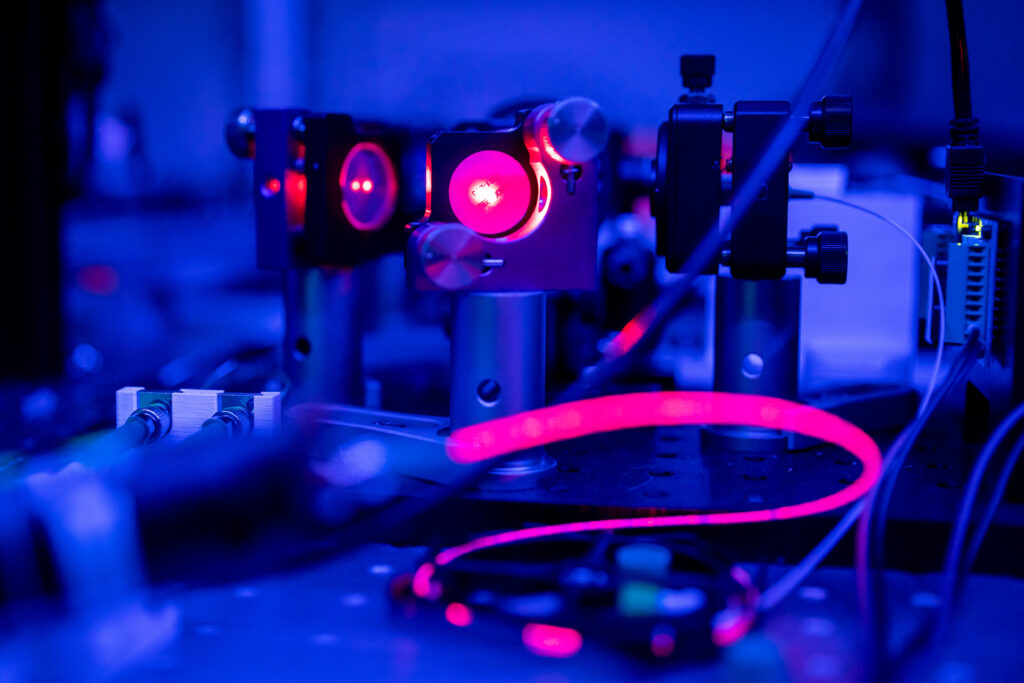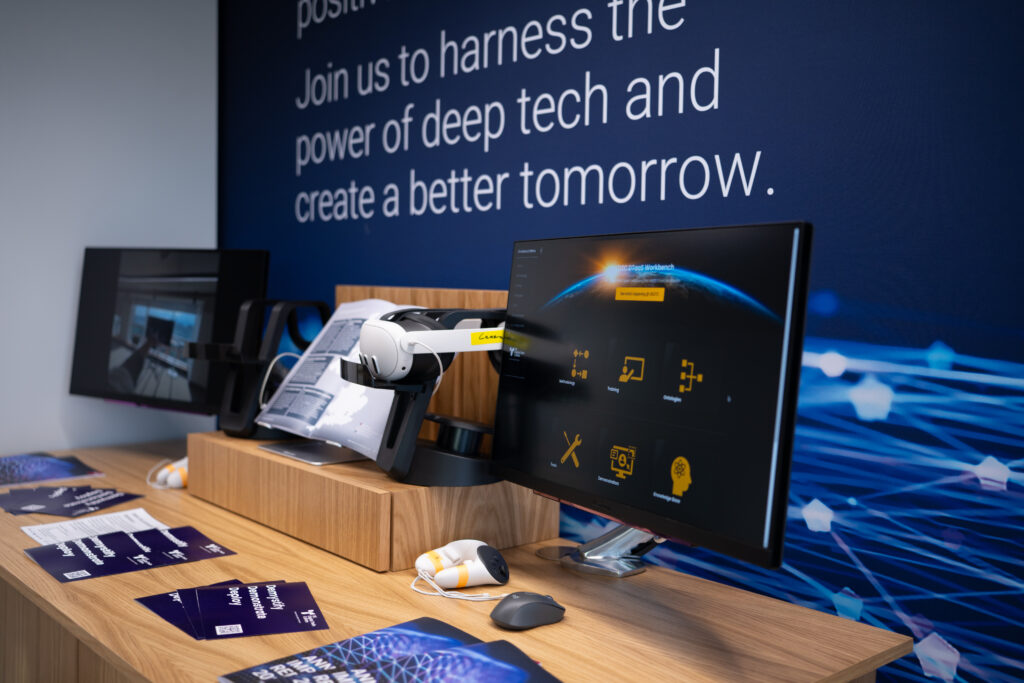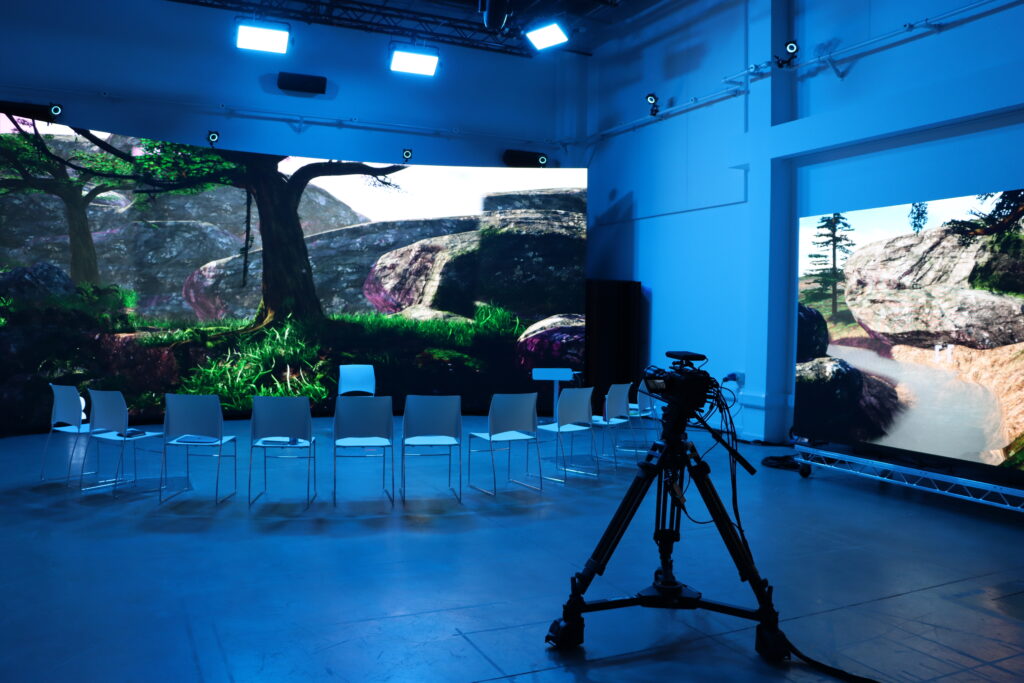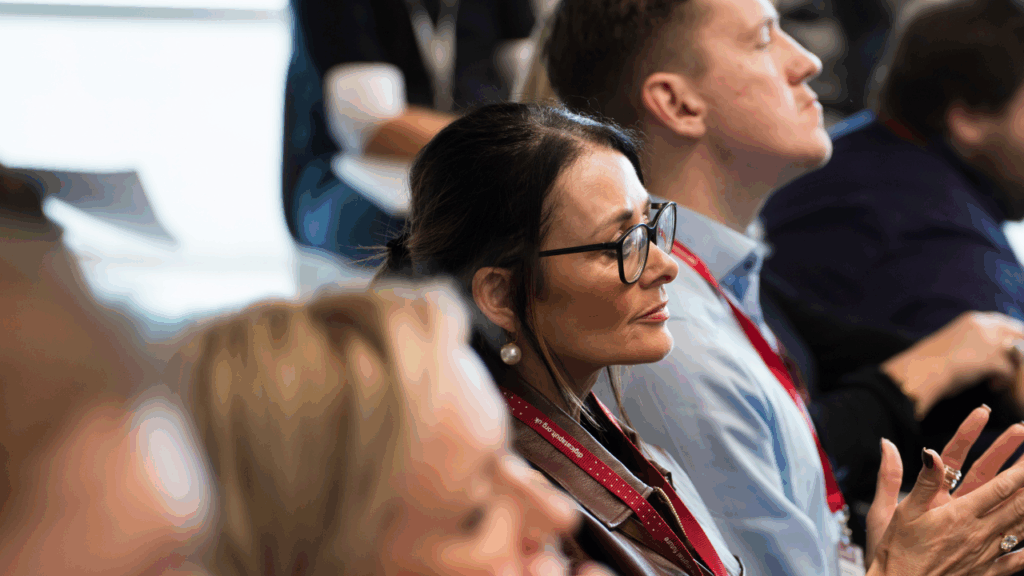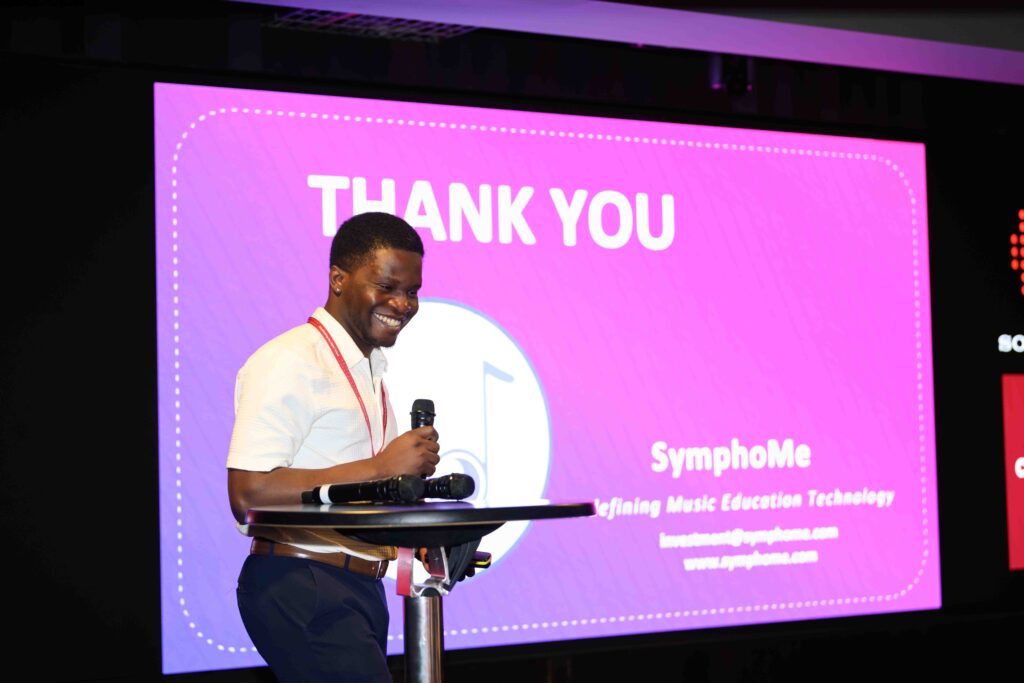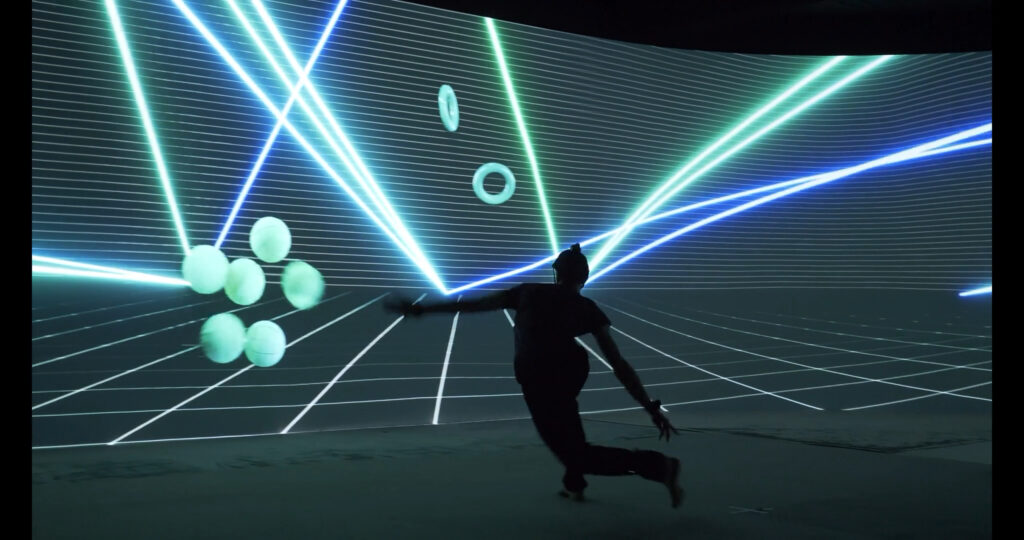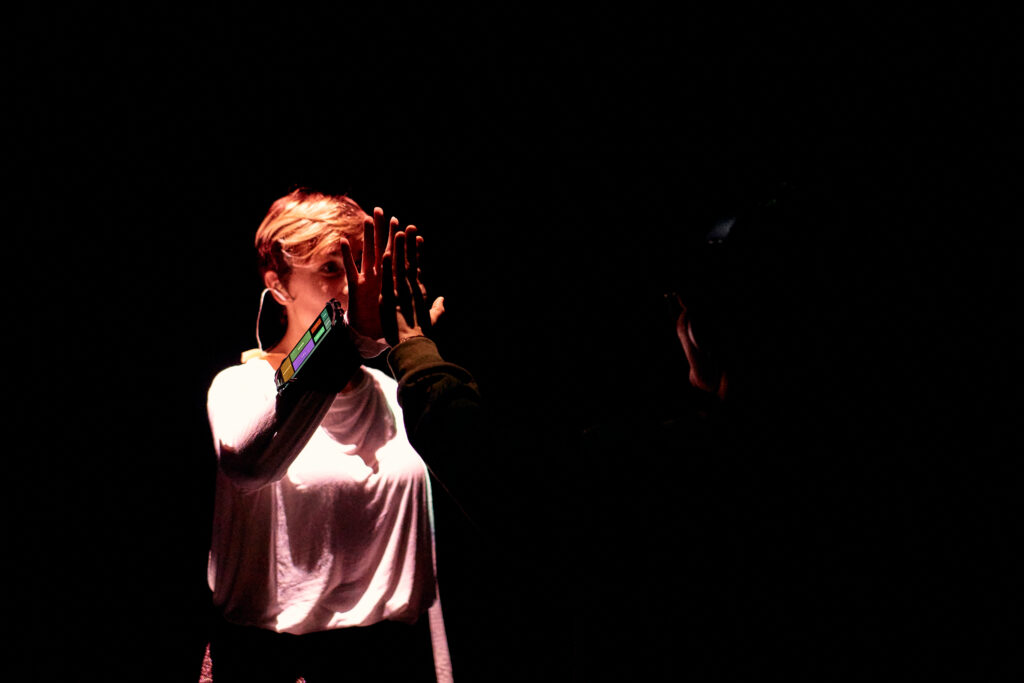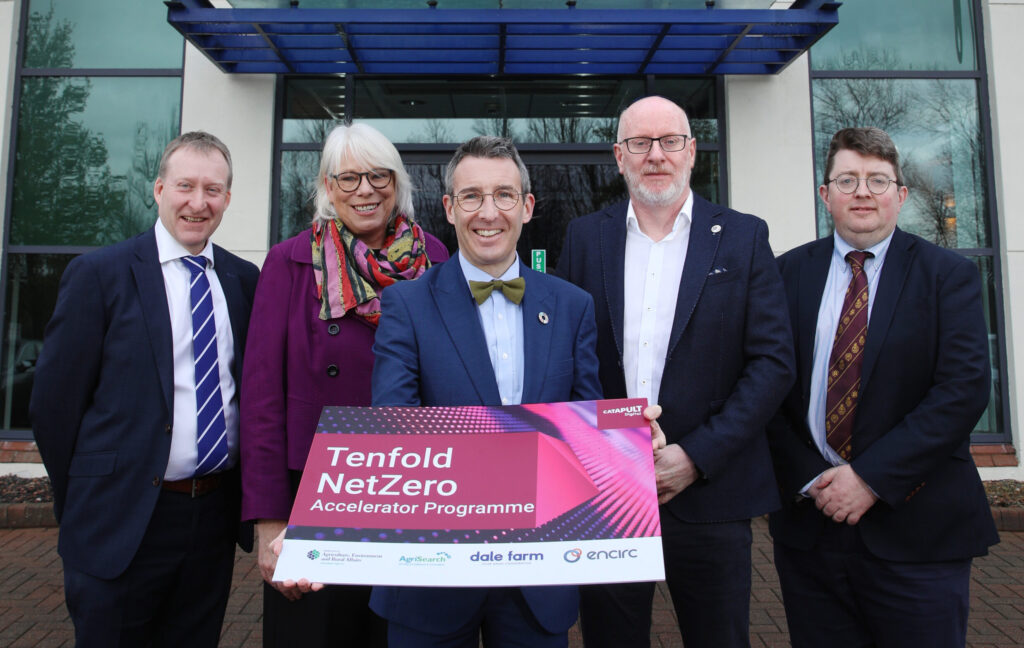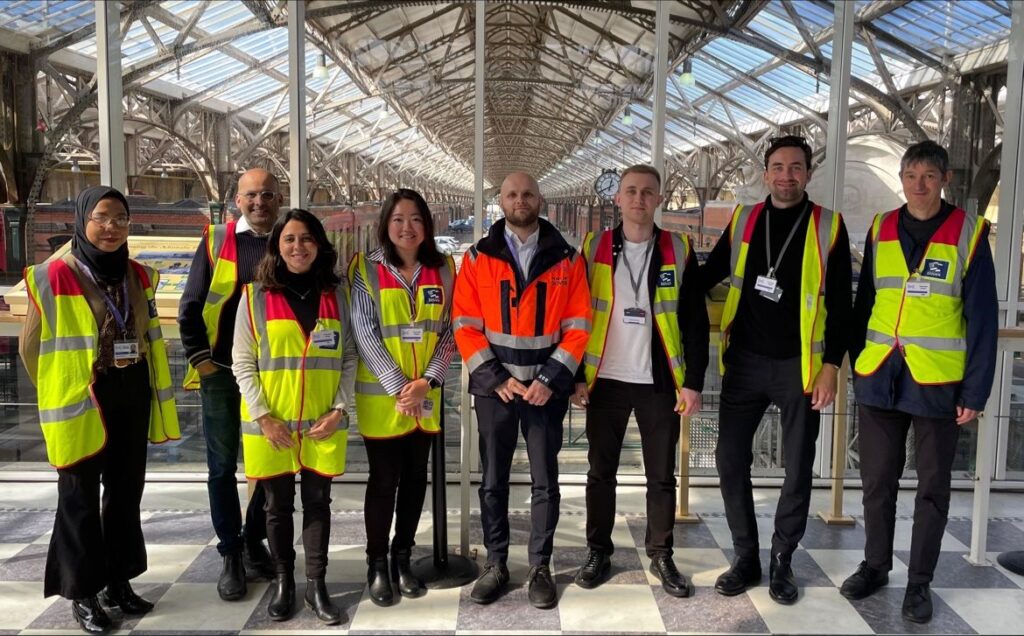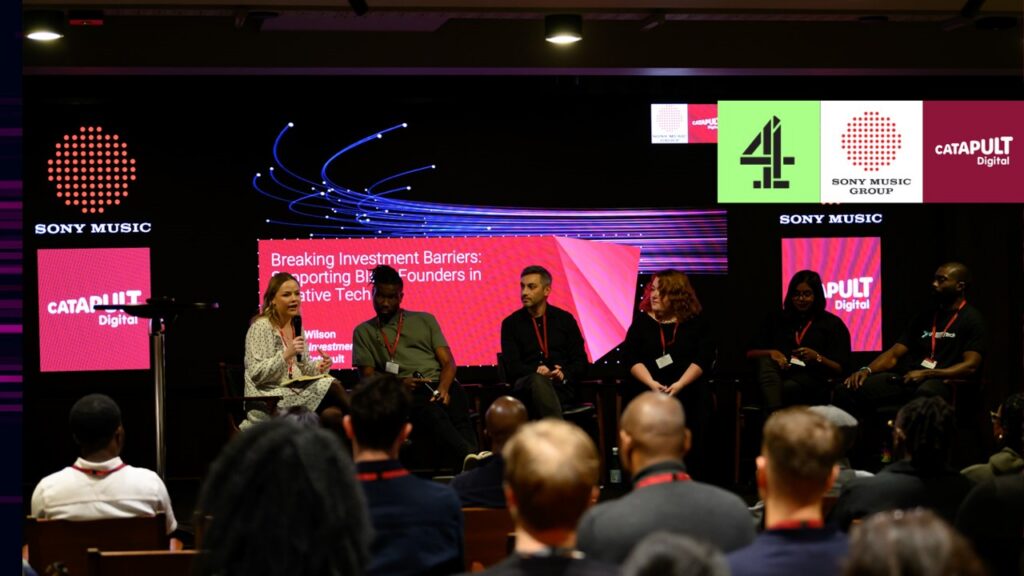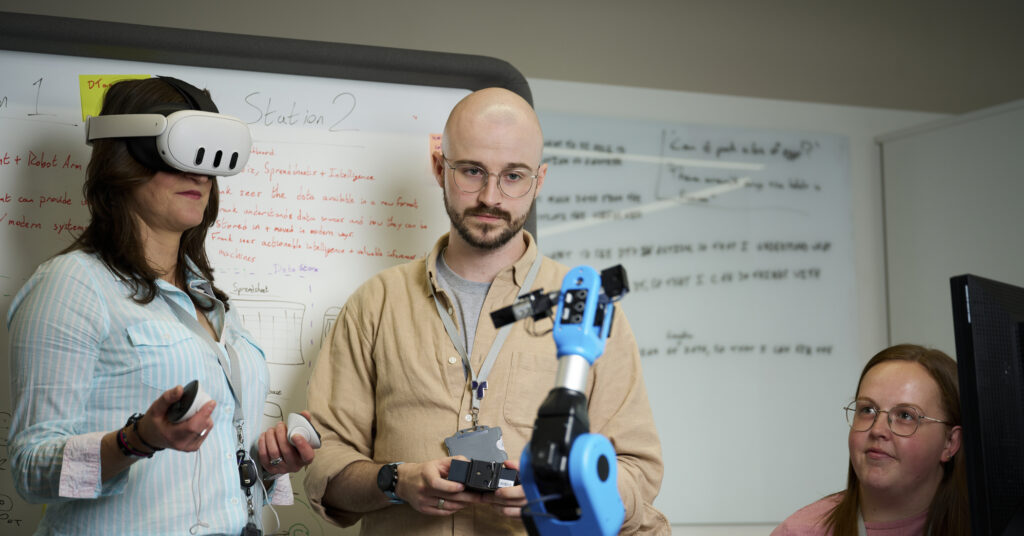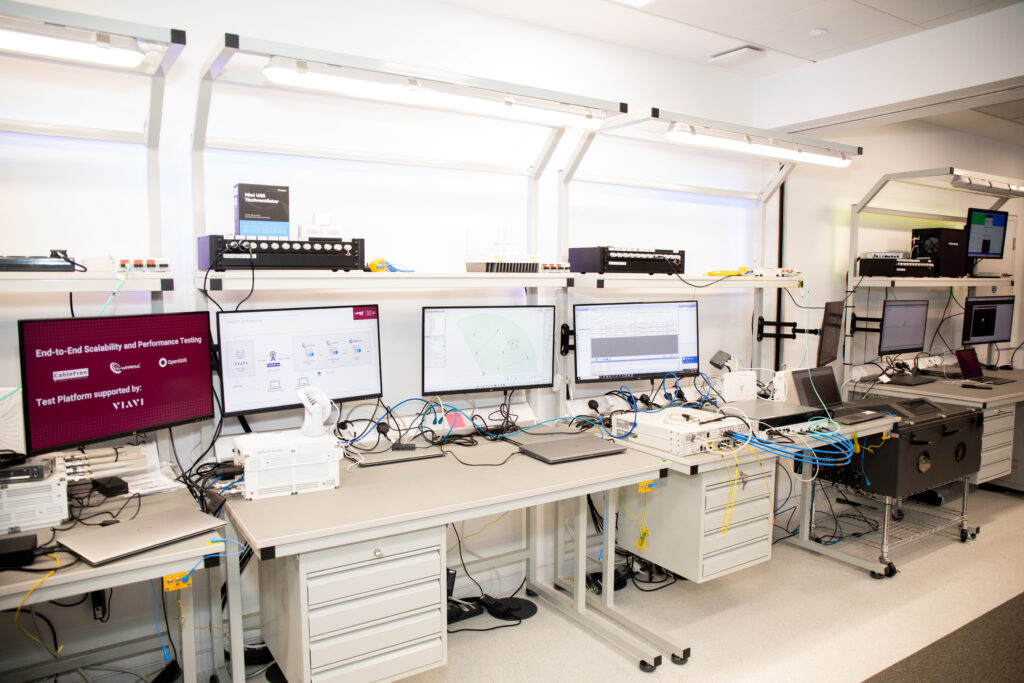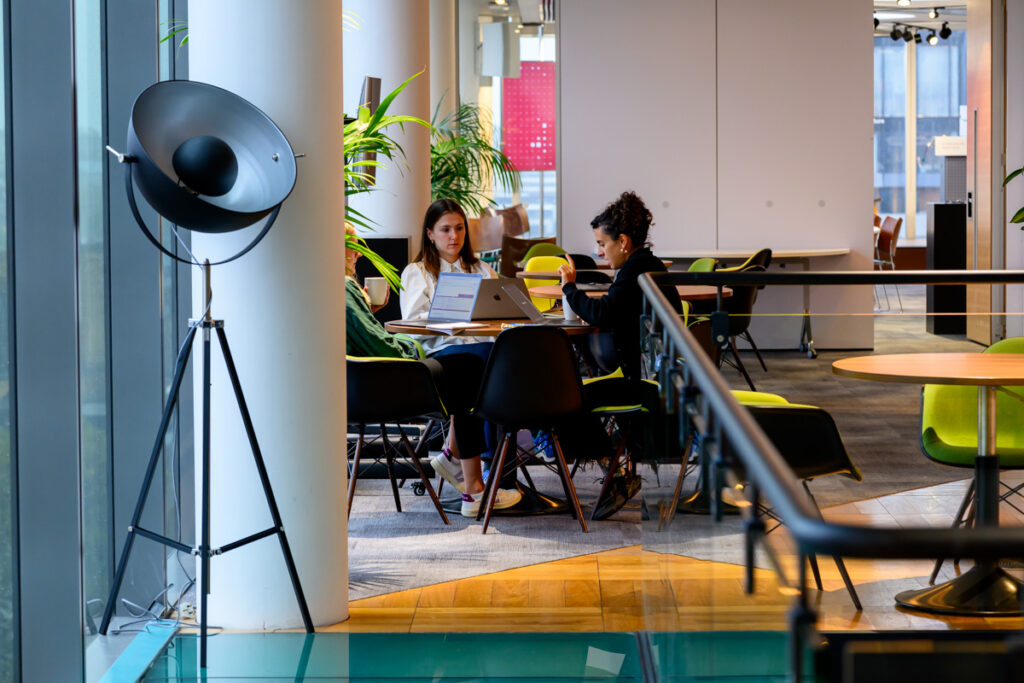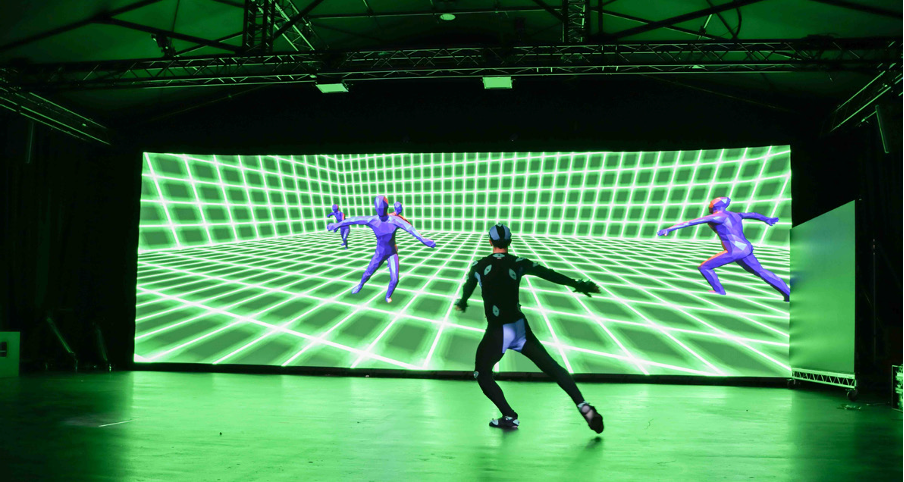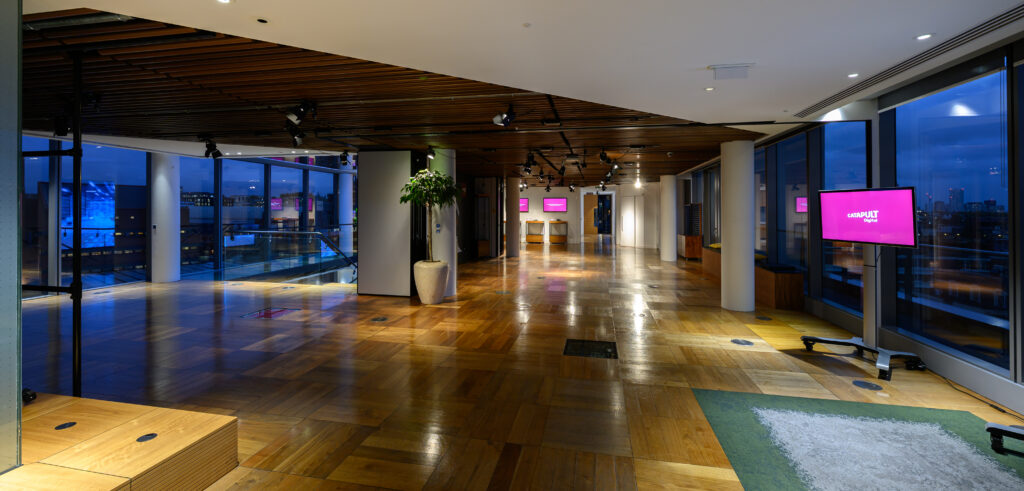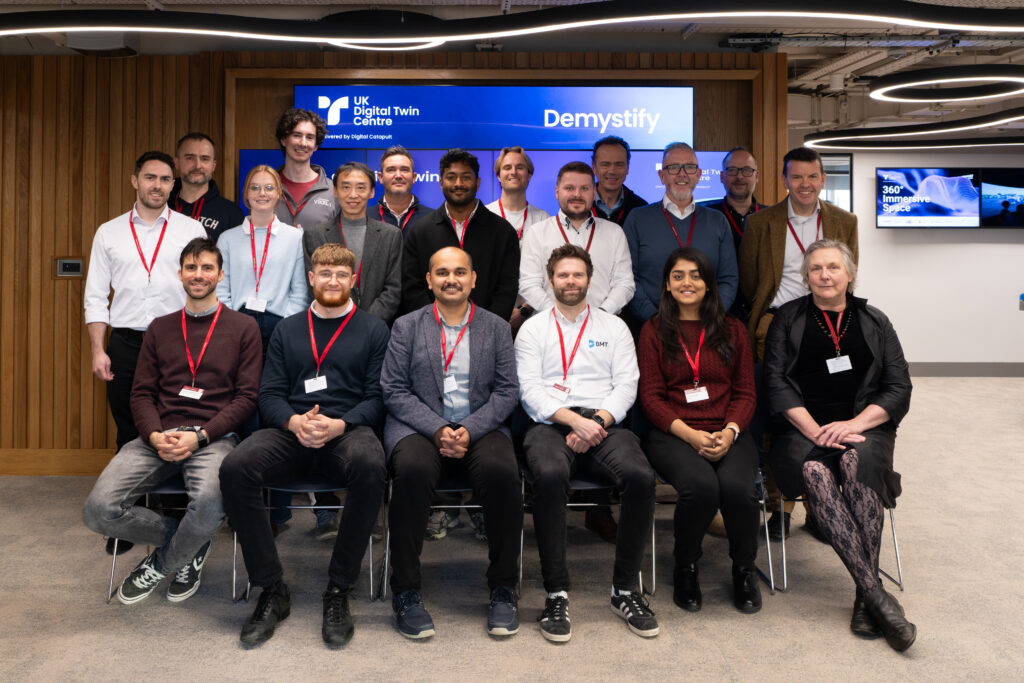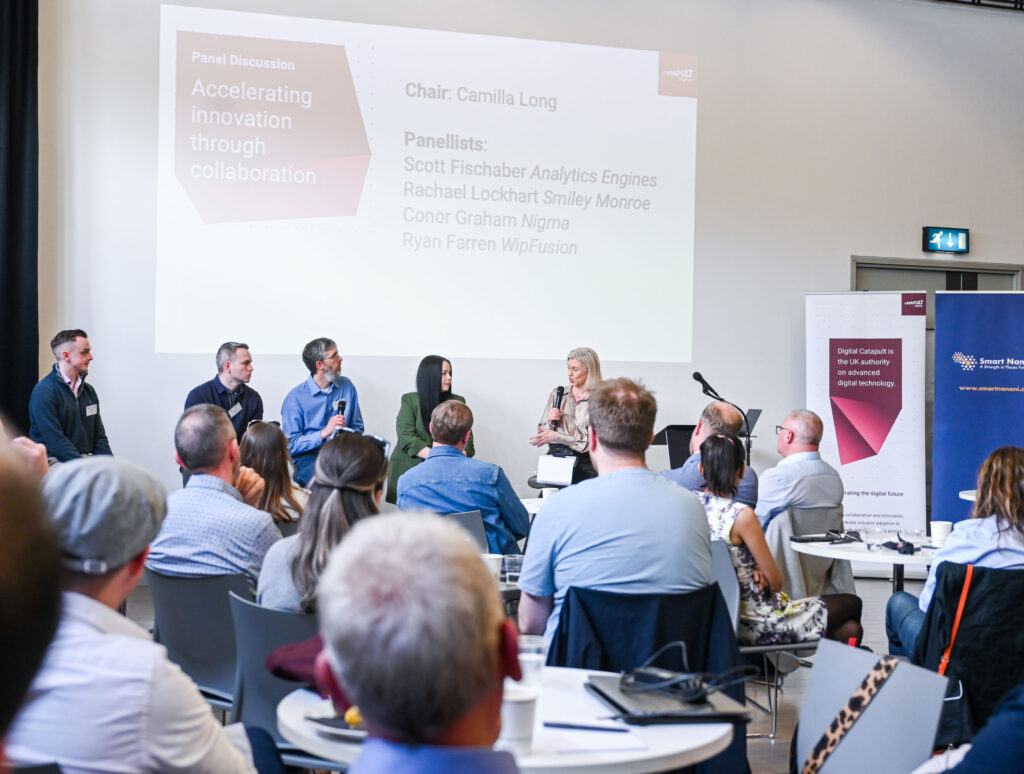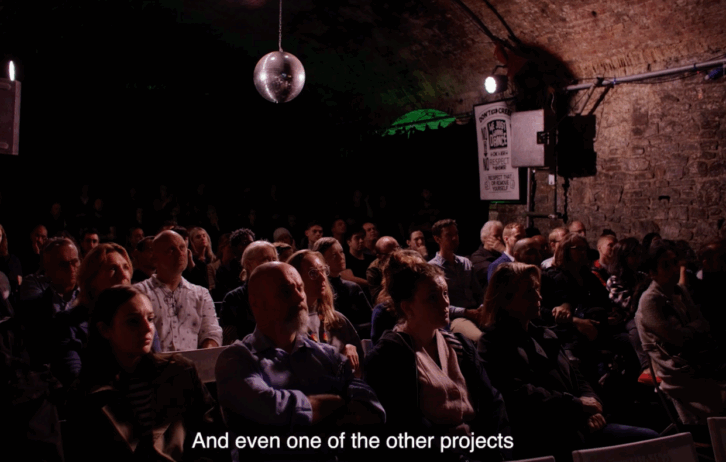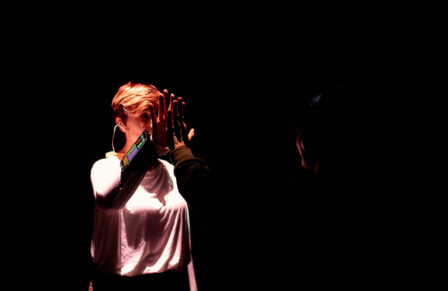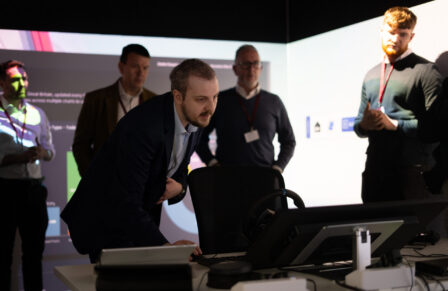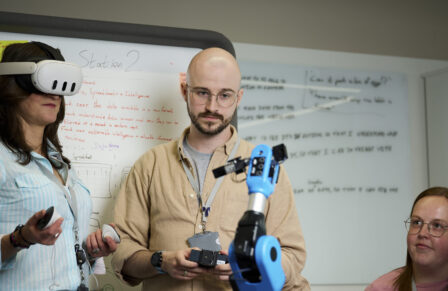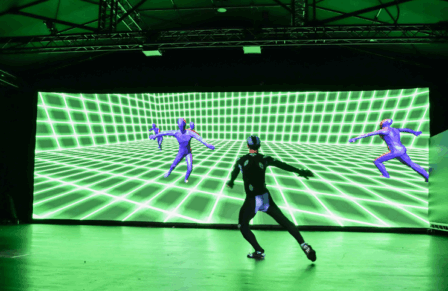Devolved funding pipelines allow decisions to be made locally about how, when and where allocated funding is spent. Local and regional bodies have the best on-the-ground knowledge about the needs, strengths and weaknesses of their ecosystems, which means they can target interventions effectively, while building relationships and developing companies and individuals.
Devolved funding establishes West of England innovators as global leaders in the creative industry
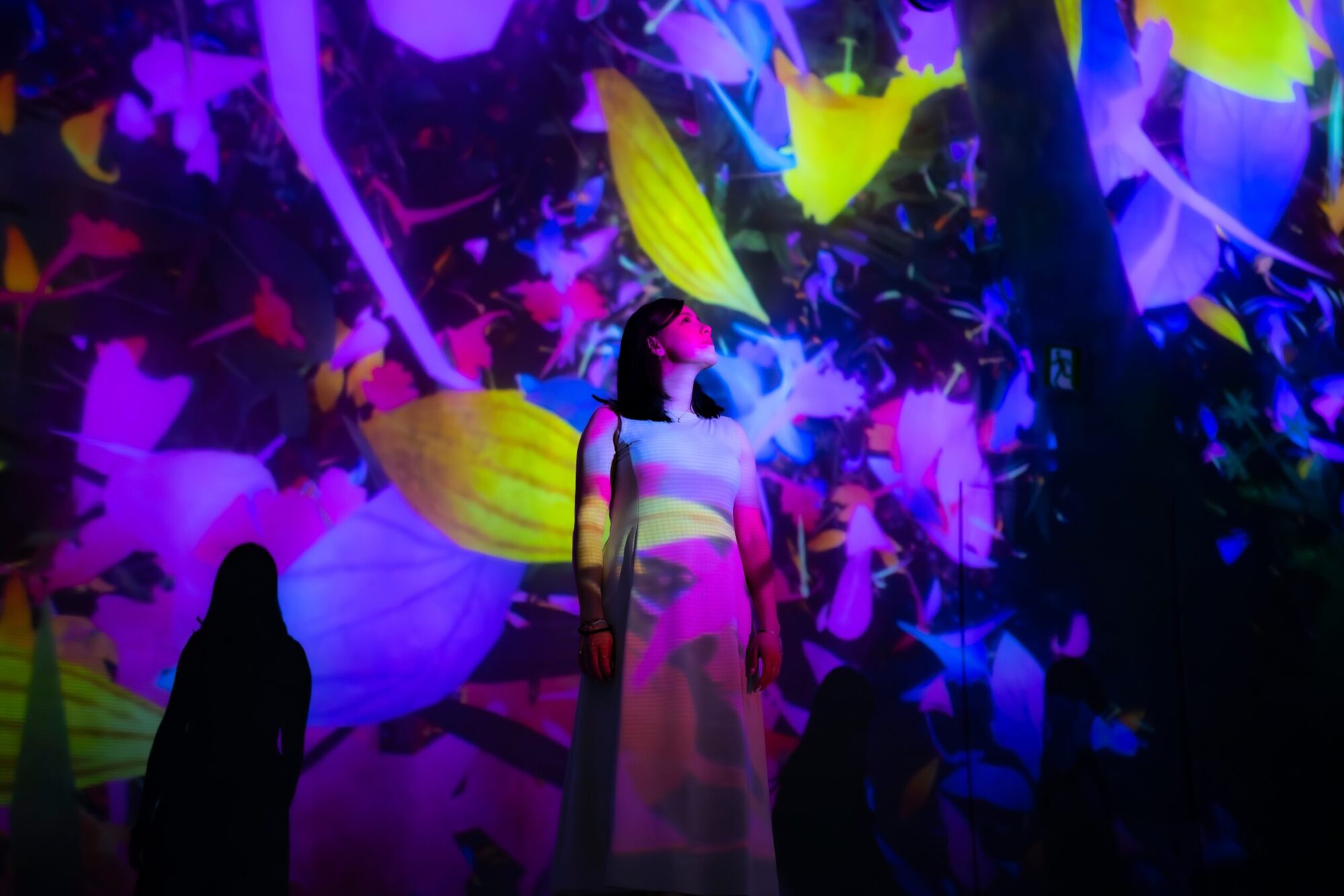
Led by the University of Bristol and backed by UKRI, MyWorld explores the future of creative technology innovation by pioneering new ideas, products and processes. The programme focuses on supporting the creative industries in the West of England region by providing access to world-class facilities, funding, research, tools, and training. It brings together prominent partners from academia and industry, and invests in creative technology innovation to stimulate growth, drive societal change, and strengthen the region’s position as a centre for cutting-edge development.
The MyWorld programme is a consortium of 13 partners – including universities and relevant creative organisations from the region (including Aardman and the BBC), and Digital Catapult.
As a partner in the programme and specialist in deep tech innovation and adoption, Digital Catapult has delivered four strategic open calls for MyWorld: funded, low-risk opportunities for participating businesses to experiment and accelerate their growth by carrying out innovative R&D.
Effectively targeting support through devolved funding
Traditional funding often prioritises either early-stage research or large-scale commercial projects. Many small-to-medium creative businesses working with emerging technologies struggle to access relevant support that would help them to innovate and scale. Devolved funding models, such as MyWorld’s Challenge Calls and Collaborative Research and Development (CR&D) funding, help to fill this critical gap by providing targeted local support where it is needed most.
As a result, participating companies have been able to turn their prototypes into products, cultivate global partnerships, and showcase their innovations on the world stage.
The four open calls delivered by Digital Catapult
MyWorld’s four open calls (two Challenges and two CR&D) were strategically designed to focus on a different theme while building on previous learnings at each stage. The two challenges were designed around relevant focus areas in the creative technology space (tooling and artificial intelligence) whilst the CR&D calls focussed more broadly on different application areas across the creative technology landscape.
Via Digital Catapult, participants received funding from MyWorld and were provided with valuable business insights and technical expertise for researching and prototyping new products and services. Leveraging existing Digital Catapult accelerator expertise, this support included mentoring and workshops, alongside valuable access to peer networking and industry connections, such as with NVIDIA and AWS.
We also supported partnerships between MyWorld and other relevant programmes and opportunities – for example The Alan Turing Institute, a programme partner on Innovate UK BridgeAI, delivered a workshop for those applying to Challenge 2: Amplifying Imagination to provide value to the wider ecosystem. Our funded SMEs had the opportunity to attend high profile industry events alongside MyWorld including SXSW Austin, SXSW London and ACM SIGGRAPH.
Challenge Calls
These centred on collaboration with industry. Digital Catapult partnered with NVIDIA, the BBC and AWS to define the challenges, and the call was for innovation proposals for an early-stage prototype that would meet the needs of the industry partner. Successful participants received funding to deliver their prototypes, while benefiting from direct feedback from the industry partner, and wrap-around support from business and technical experts within Digital Catapult and the MyWorld network. This support included investment pitch training, responsible innovation and defining a value proposition.
Challenge Call 1, Catalysts and Connectors (Jan-Sept 2023)
Supporting nine businesses to respond to industrial challenge as defined by programme partner Nvidia, and prototype new tools for industries within the creative sector, helping them test bold ideas, access networks and develop products that would have regional and national impact.
Challenge Call 2, AI in the Creative Industries (June-Oct 2024)
Supporting developers, studios, startups, and scaleups to explore how AI can transform creative processes — from capture and creation to delivery and evaluation – while giving participants the chance to develop practical AI-driven solutions to real industry challenges.
CR&D
The Collaborative Research and Development projects calls industry and academic partners together to fuel groundbreaking research and deliver commercial products for media production in the UK and beyond, delivering ambitious innovation projects that centred on experimentation while boosting the region’s creative ecosystem. These were longer-term projects (a year to 18 months) focussed on experimental innovation, with funding of up to £250,000 per project.
Participants partnered with one of the four main universities in the region (Bristol, Bath, Bath Spa and UWE), giving them access to world-leading research expertise, as well as university facilities, technicians, user testing and additional delivery and research support from PhD students.
Collaborative, Research & Development 1 (June 2023 to Feb 2024)
£1 million was awarded across six projects, pairing creative companies with globally- recognised universities to co-develop prototypes, producing commercial outputs and academic research, and strengthening ties between industry and academia in the West of England.
Collaborative, Research & Development 2 (July 2024 to March 2026)
Through this second CR&D call, projects are now developing prototypes that push the boundaries of immersive technology, AI, and new media, embedding responsible innovation principles such as accessibility and sustainability.
Fellowships
Additional funding activity facilitated by Pervasive Media Studio (Watershed) enabled project teams to conduct complimentary research into subject areas connected to the main body of research.
For example, some of our CR&D projects took this opportunity to analyse how their projects might push boundaries in accessibility, Black Laboratory brought in a fellow to research how puppets might be used to overcome some of the barriers people with autistic spectrum disorder face when engaging with others.
Project highlights
Meaning Machine
Meaning Machine’s journey shows how devolved funding can enable advancement from first prototype to international recognition.
Meaning Machine set out to revolutionise gaming with AI-driven dialogue systems that give non-playable characters (NPCs) the power to hold meaningful, freeform conversations with players. This doesn’t replace creative teams – it gives developers more control over how they build their worlds and enables them to create even more immersive narratives.
The first Challenge Call enabled Meaning Machine to develop their game-conscious NPCs and showcase them in a prototype game, Dead Meat. Subsequently, their progress into CR&D 2 inspired investor confidence and a £250,000 pre-seed round soon followed, valuing the company at £3 million.
Meaning Machine is now an official NVIDIA partner, is featured in the BFI’s landmark report, AI in the Screen Sector, and has been showcased at speaking slots at SXSW 2024 in Texas , GDC 2024 in London, and Develop:Brighton in 2025. They have also partnered with immersive theatre pioneers Punchdrunk to power Lander 23, which blends AAA game dynamics with live performance, and have hired a new board advisor and new game developer.
We wouldn’t exist without the Challenge Call… it was the big unlock for us. The hands-on attention from Digital Catapult and MyWorld was exceptional… more than the money, it made us think bigger at a critical moment.
CR&D gave us space to make the technology and [achieve] credibility with AAA studios, and partnering with the University of Bristol on the largest-ever study into AI NPCs provided us with credibility in our conversations with major studios.
Thomas Keane Co-founder at Meaning Machine
We wouldn’t be where we are now without MyWorld. Every piece of funding accelerated our software and sensor development.
Without it, we’d still just be selling hardware — now we’re shaping the future of software-led camera robotics.
Ben Dair Motion Impossible
Motion Impossible
Already a success story, Motion Impossible used Challenge Call support to prototype new software and sensor systems for its AGITO camera dolly platforms. This enabled them to introduce new safety features and semi-autonomous controls, making it easier to manage multiple cameras during live events or large productions. They were also able to launch their Commander software, which is evolving into middleware for industry-wide applications.
The Motion Impossible R&D team has now doubled, and they have opened a new Innovation & R&D Centre in Yate that supports other UK creative companies, enabling them to test VP equipment with Motion Impossible’s camera dolly systems. Their technology has been used in global collaborations with household names and they have earned the highest level of industry recognition, including being awarded an Emmy® for Outstanding Achievement in Engineering, Science & Technology in 2025.
The Black Laboratory
The Black Laboratory, an award-winning animation studio, used MyWorld’s devolved support to explore new approaches to puppetry and non-verbal communication for neurodiverse users. Challenge Call funding enabled them to rapidly prototype their motion capture system for puppetry, which blends animation with live performance. Additional funding through CR&D 2 and fellowship support expanded their research.
At SIGGRAPH 2025, The Black Laboratory’s puppix team took to the stage for a standing-room-only demonstration of their technology, which uses live physical whole-puppet performances to drive digital animation twins. Director Ben Mars then led a roundtable on performing characters in real time. Their presence at this event gained the business international recognition, while enhancing the South West and Wales’ profile as a centre for creative R&D.
It would have taken us another year of part-time working on this to get to approving a concept – so a year and a half. That’s not as solid as being able to go, ‘We did this in six months’, which is the expectation. ‘Oh, and by the way, we’ve got NVIDIA backing us’.
Ben Mars Director at The Black Laboratory
Challenge Call funding was unique and significant for our stage — it let us invest in a new product we couldn’t have built otherwise, and kept us full-time in the business. Without it, I’d have gone back to freelance work — that’s the reality.
Ashley Gwinnell Founder at Impress Launchpad
Workshops on customer personas and buying triggers were useful — they sharpened how we think about adoption.
Impress
Indie game developers face huge competition when getting games to market. Impress Launchpad is tackling this head-on with a smart, AI-powered marketing toolkit designed to help small studios reach the right players and audiences.
Challenge Call 1 funded their core CRM and outreach workflow, and Challenge Call 2 enabled them to expand into AI-driven creator discovery that would integrate with Twitch and Steam. This enabled the team to build a toolkit that enables indie devs to find creators, run campaigns, distribute keys and report coverage – everything needed to launch and grow their games. Their Challenge Call 1 win validated successful follow-on bids for Challenge Call 2 and Innovate UK Creative Catalyst.
The benefits of devolved funding
The successes of these projects show how devolved funding pipelines can be used effectively to translate regional creativity into national and international impact:
By connecting funding to local expertise and industry needs, we have been able to champion place-based R&D models, strengthen ties with global industry leaders, and expand opportunities for the next generation of creative innovators.
Positioning the West of England as a global creative technology hub as part of Digital Catapult’s activities in South West and Wales
Obtaining international exposure at showcase events including SXSW Texas and SIGGRAPH
Validating follow-on investment, from pre-seed rounds to major collaborations
Leading to the creation of new jobs and facilities (for example, at Meaning Machine and Motion Impossible)
About MyWorld
MyWorld is a flagship programme for the UK’s creative technology sector. Led by the University of Bristol, it convenes the leading universities in the region, and over 30 technology, creative and film companies to cement the West of England position as a creative media powerhouse.
